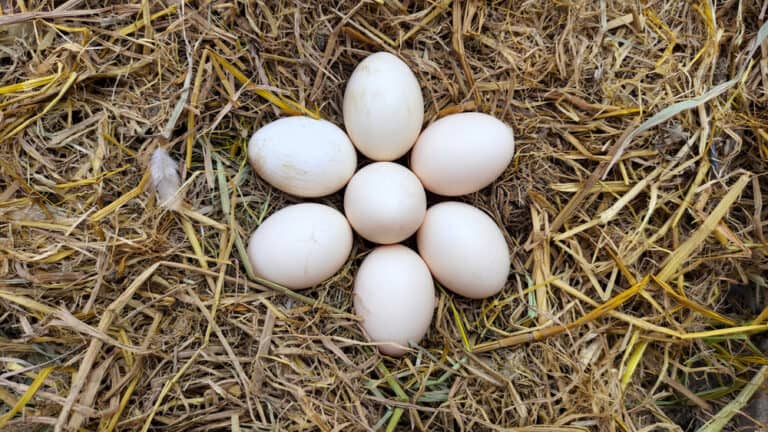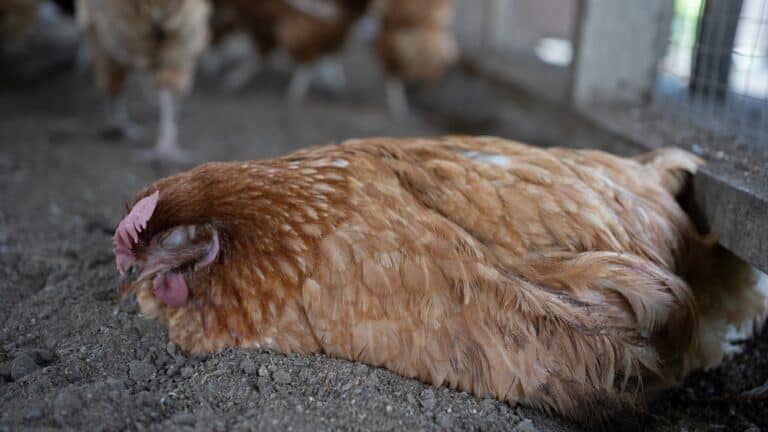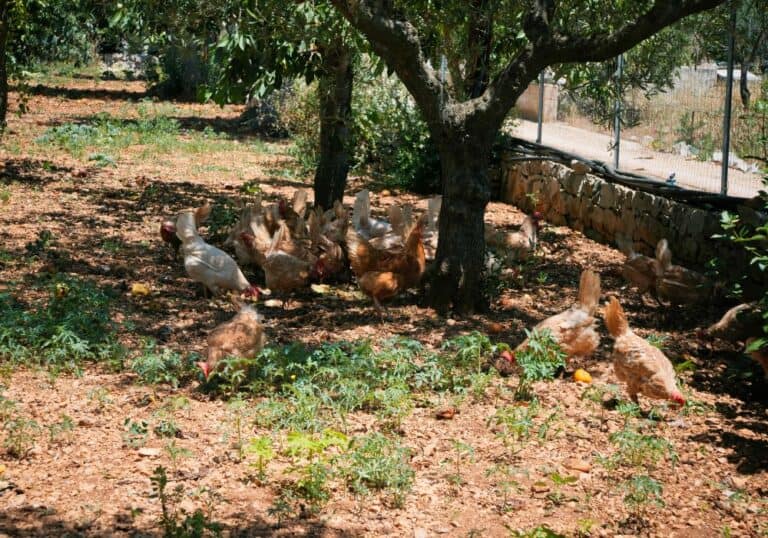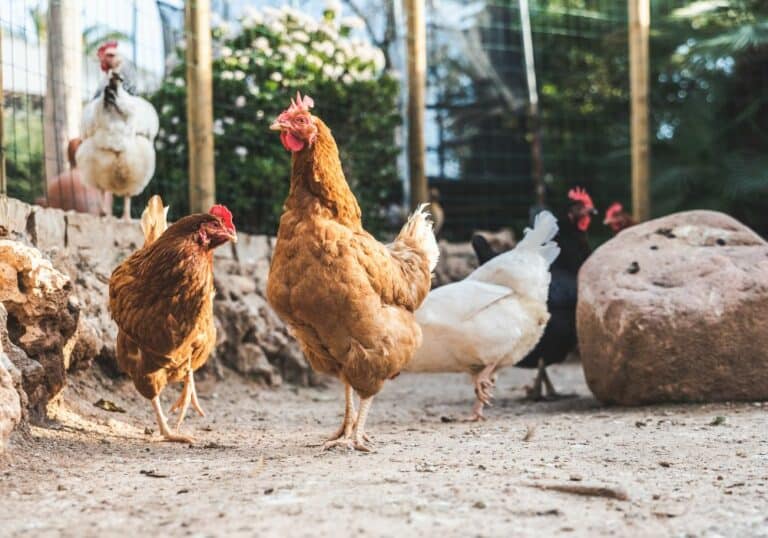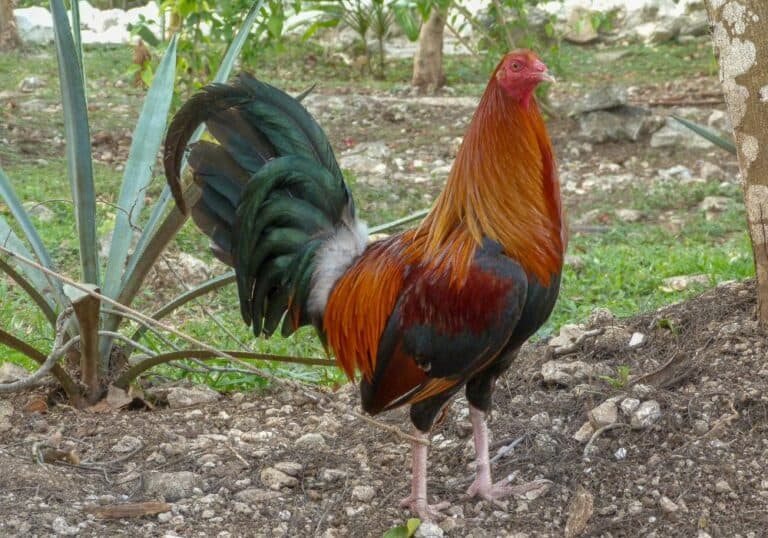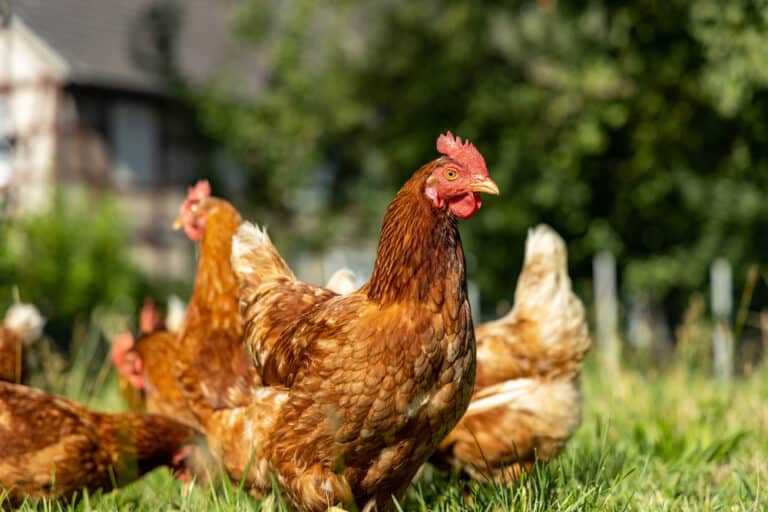Without a doubt! Winter’s charm is undeniable. The glistening snow, crackling frost, and delicate snowflakes create breathtaking scenery and evoke a sense of awe and peace.
However, amidst the ethereal beauty and cozy allure, a challenge emerges for chicken owners–how to prevent their egg supply from reducing.
Naturally, chickens reduce or stop egg production during winter. As such, keeping them laying during the cold months could prove extremely difficult, but not impossible.
In this guide, you will discover several strategies and secrets to unlock a steady supply of eggs from your backyard chickens.
Are you ready to discover the keys to winter egg production? Join us below!
Reasons Chickens Stop Laying Eggs During Winter
Most people who shop for eggs from groceries and supermarkets forget this product is seasonal, like vegetables and fruits. However, poultry owners understand that egg production reduces during winter due to these three reasons.
1. Daylight
The first trigger is daylight. A hen’s reproductive system requires approximately 14 hours of daylight within a 24-hour period. The light helps to stimulate the ovaries and promote egg production.
But in the cold months of winter, hens can only receive about 9.5 hours of sunlight due to shorter days. This low light exposure sends cues to the hen’s reproduction system to reduce and eventually stop egg production.
In a way, it’s more of a survival instinct. Mother nature understands that baby chicks rarely survive in the winter months, so it forces the chickens to stop laying eggs until the time of the year when their offspring can thrive.
As you can see, chickens instinctively lay eggs for reproduction, not for your love for poached or fried eggs.
But how do hens sense light levels?
Well, they use the avian pineal gland (epiphysis cerebri) located in the head. The gland receives information about light-dark cycles via the hen’s eye.
It’s responsible for regulating biological rhythms that govern several hormonal-dependent processes in hens, including:
- Egg laying
- Broodiness
- Molting of feathers
- Immune system modulation
- Antioxidant activities
In egg production, the gland must sense enough hours of light to stimulate the laying cycle.
2. Cold Temperature
Besides daylight hours, the cold winter temperature decreases egg production. Why?
Chickens require a lot of energy to form and create fresh eggs daily. But during winter, they have to redirect energy to keep themselves warm. And to support other body systems, like the circulatory system.
The cooler temperature might also cause cold stress, a condition that affects the flock’s health and productivity. This is because the chickens work harder than normal to stay warm.
3. Fall Molting
Fall molting occurs annually after a chicken has reached one year of age. During molting, hens drop old feathers and grow new, vibrant feathers. Although the low light intensity linked with winter might not trigger laying, it can stimulate molting, which requires lots of energy.
As the chickens grow new feathers for the winter months, their reproductive systems halt the egg production process. Their bodies also focus on saving more energy for the cold weather.
Fall molting leads right into winter. As a result, your backyard chickens might not produce eggs until spring.
If your hen rocks fresh feathers during winter (except for her tails), her molting cycle is about to end. Most times, tail feathers shed and grow last during the molting process.
How Do I Keep Chickens Laying Eggs During Winter?
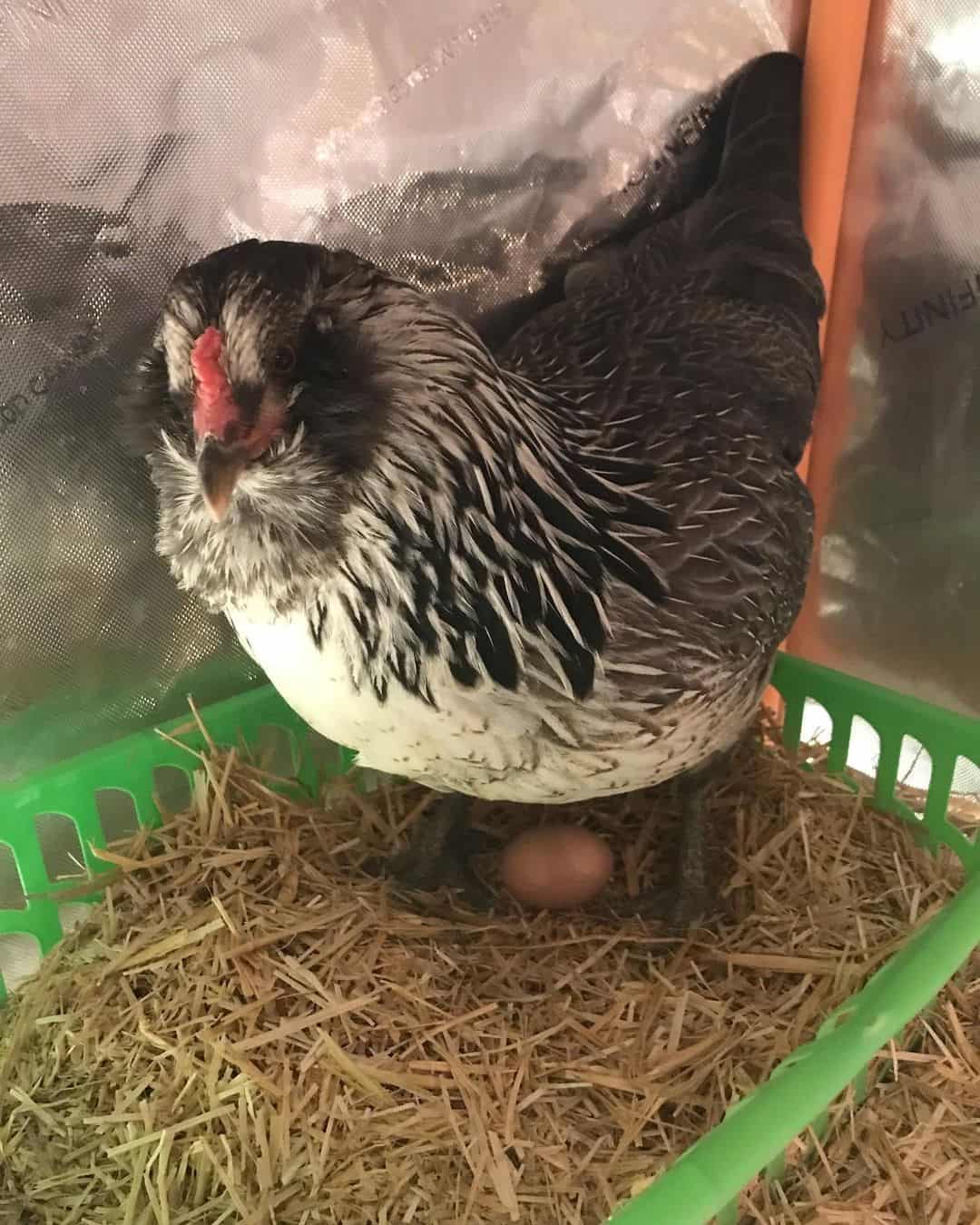
There are several strategies you can adapt to conquer the frosty hurdles of winter and enjoy a bountiful harvest from your flock.
But first, is it wise to force your chickens to produce eggs during the cold winter months?
Yes, and no! Let us explain.
Most backyard chicken owners let nature take its course. However, those who raise chickens primarily for egg production need a continuous supply of eggs even in winter.
The downside is that the egg-laying process harms the chickens’ health. Without resting, strenuous work can damage your birds’ bodies and sometimes cause irreversible damage.
Nevertheless, if you opt to increase your egg production during the cold season, the tips below will come in handy.
1. Provide Your Chickens with Artificial Lighting
For the worst of winter, your chickens require approximately 14 hours of daylight to maintain egg production at optimum levels.
But winter only offers us 9.5 hours of sunlight. So, where will the remaining 4.5 hours of light come from?
That’s where artificial lighting comes in.
Artificial lighting in your chicken coop allows you to extend the perceived daylight hours, encouraging laying.
You can use a lightbulb to introduce artificial lighting to the coop. But make sure it’s an incandescent bulb, not a fluorescent bulb. Also, ensure the bulb is well secured and out of reach of chickens and their bedding materials, like straws.
Speaking of light bulbs, opt for a “warm” bulb (it produces an orange light). “Cool” wavelength light bulbs like those used in offices will not stimulate the release of ovaries to release a yolk and begin the egg-laying process.
Once you’ve introduced artificial lighting, set the light to turn on in the morning (4 am to 8 am) using a timer. If the light turns on at night, it might stress your birds and encourage cannibalism.
The timer also allows you to create a consistent light schedule for when the light switches on so you don’t need to wake up at 4 am to turn on the light.
You want to adjust the artificial lighting to sunset time during winter to mimic natural daylight patterns. This way, your flock can enjoy consistent daylight for up to 14 to 16 hours.
Lastly, have a backup plan in case of a blackout or power outage. You can use battery-power lanterns as power backups.
2. Provide Proper Nutrition
It’s common for some chicken keepers to reduce their flock’s layer feed during winter. But chickens require sufficient food to generate energy to keep warm in the cold weather.
Remember, the snow reduces natural foraging opportunities. For this reason, provide your chicken with a sufficient, well-balanced diet consisting of proteins, vitamins, and minerals.
Protein-rich feeds and treats, like meat scraps and sunflower seeds, provide your hens with enough protein for egg formation. The extra protein will also help your chickens get through molting and resume laying.
Besides proteins, your hens require supplemental calcium during wintertime to support eggshell development. For additional calcium, you can crush eggshells or oyster shells and feed them to your chicken.
If your hens don’t receive enough calcium, they will produce soft-shelled eggs. Their bodies could also start drawing calcium from the bones to maintain the blood calcium levels. As a result, they might become susceptible to bone fractures and osteoporosis.
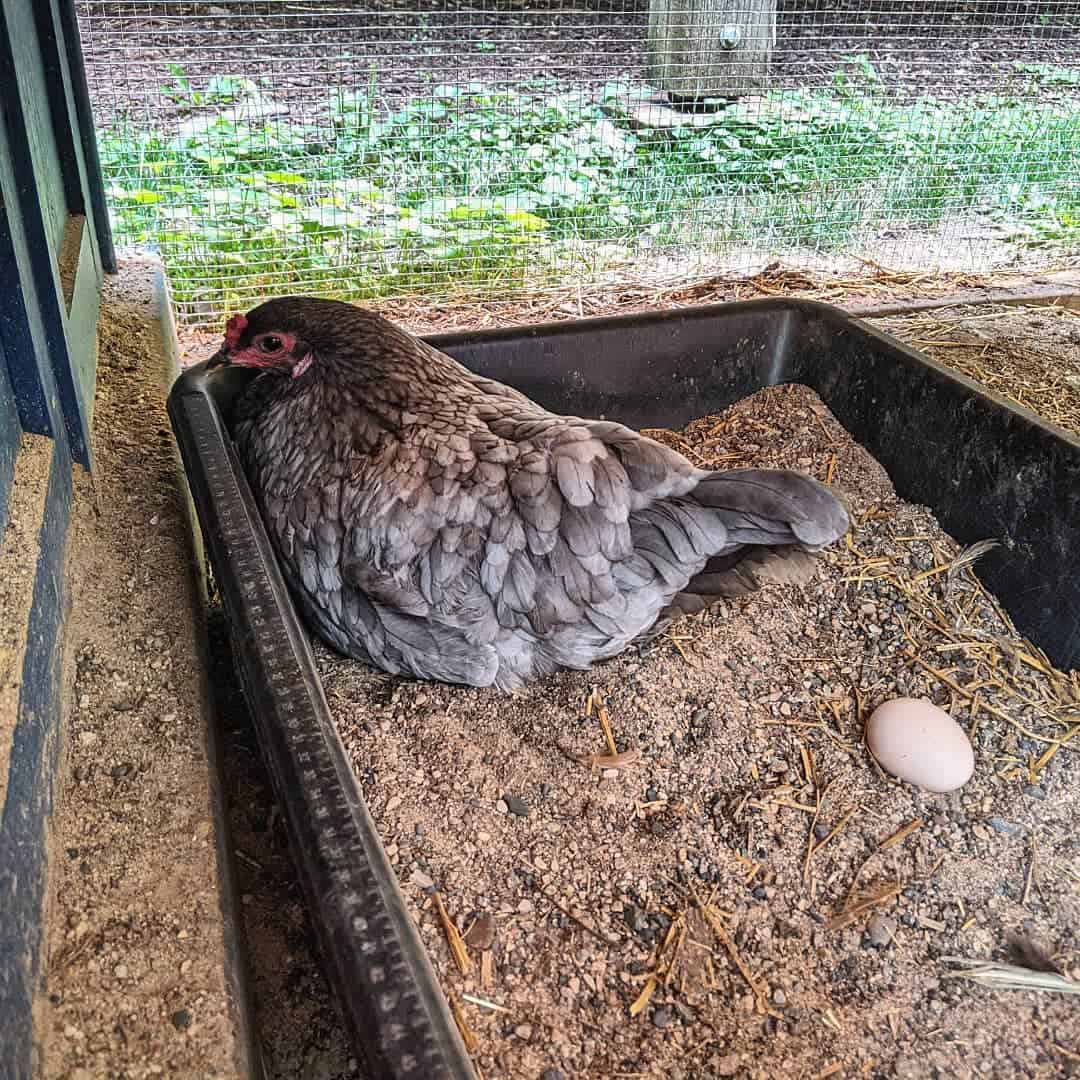
3. Hydration Matters
Although water intake is likely to reduce in winter, it’s still vital for your chickens to receive an adequate supply. Keep in mind, an is made of 75% water. Therefore, you can’t expect to get eggs from your birds if they are thirsty.
When hens lose access to water, they can stop laying eggs for several days, sometimes even weeks. The same applies to broilers because, without sufficient water supply, they may not eat a lot, meaning they won’t grow big.
Water also helps to regulate body temperature, digestion, and the extraction of waste materials. So, ensure your chickens’ water bowl is full of clean, unfrozen water at all times if you want a continuous supply of eggs.
4. Maintain Optimal Housing Conditions
Another way to support consistent egg production during winter is to create a safe and comfortable environment for your flock.
You want to insulate your chicken coop to prevent your birds from the cold winter temperatures.
It also helps to introduce some heat lamps to keep your chicken warm. But remember, these heat sources are huge fire hazards, so place them out of chicken reach and their beddings.
To reduce the risk of fires, use the Deep Litter Method to create natural warmth. This method also helps to keep the coop clean.
If your hens stay warm in the cold months, they won’t have to use their energy to keep warm. That means they can re-direct the energy into laying.
Proper ventilation is also necessary to prevent moisture build-up. If there’s too much moisture in the air, your hens can develop respiratory issues, which affect egg production.
Additional Considerations
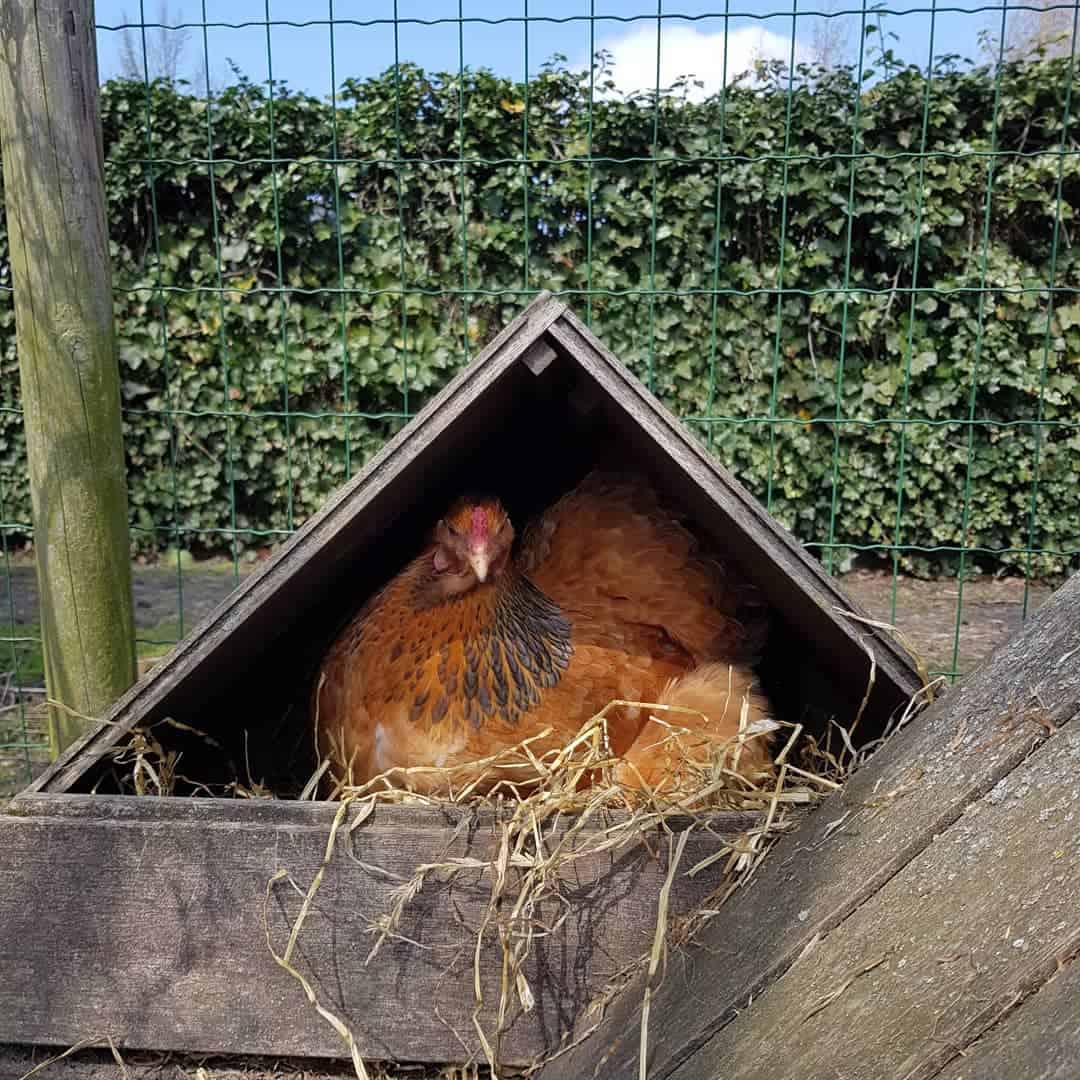
1. Select your breeds carefully
Look for cold hardy chicken breeds that can withstand cold stress and frostbite. Good options include heritage breeds, such as Delaware, Light Sussex, Rhode Island Red, Plymouth Rock, and Buff Orpington. You can also consider ducks because they lay eggs year-round with no need for supplemental light.
2. Add Pullets Each Spring
Young hens (under the age of 1 year) don’t require longer daylight exposure. This rings true if they started laying in late fall or early winter. These birds will continue producing eggs throughout winter. Older hens have slow reproductive systems, so they need more light to trigger egg formation.
3. Preserve eggs during summer
Instead of forcing your hens to lay eggs during winter, you can preserve your summer egg supply. Well-preserved eggs can last for over three months in the fridge. But don’t wash the eggs before storing or else you will remove the protective seal (bloom) that protects them from bacteria. You can also preserve the eggs in a freezer.
Bottom Line
Nature’s instincts may force chickens to break from egg-laying during winter. But adopting a holistic approach can help keep egg production up throughout the season.
Based on this article, the key to winter egg production is 12 to 16 hours of daylight exposure, a balanced diet, and optimal housing conditions. It also helps to promote chicken health by conducting regular checks and managing stress factors.
With that in mind, use these simple ideas to keep your chickens laying in the cold months. And if you have any queries, leave us a message below!

